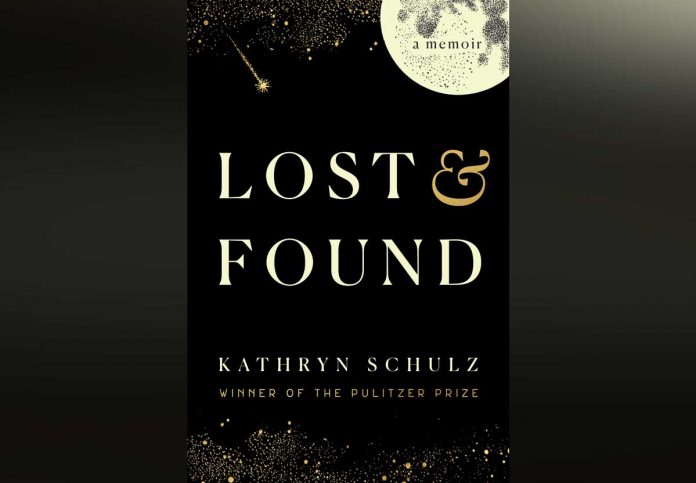Lost & Found: A Memoir
Kathryn Schulz
Picador, 2022, $34.99
Kathryn Schulz, whose beloved father Isaac dies at age 74 from a range of ailments both mysterious and familiar, always hated euphemisms about dying. Schulz winced when words were minced. Why talk of someone’s “passing” instead of just giving it to us straight?
When Schulz suffers her own bereavement, though, she finds herself repeatedly saying that she had lost her father. Her rumination and research lead her to discover that the original meaning of “lost” had much more to do with grief and death than with misplacing one’s wallet or keys.
“I lost my father last week … I was struck … by the strangeness of the phrase … And yet, unlike other oblique ways of talking about death, this one did not seem cagey or empty.” Her research shows Schulz that the verb “to lose” comes from the Old English word meaning to perish, which in turn comes from a word meaning to separate or cut apart. It is related to “lorn” or “forlorn” and “lovelorn”. Only centuries later does it acquire the more common meaning of misplacing.
Schulz describes her father, the son of a Jewish refugee from Lodz, Poland as a polyglot (six languages) with a huge love of life, conversation, learning and humanity. “When it came to other people, my father possessed the gravitational pull of a mid-sized planet. He had a booming voice, a heavy accent, a formidable mind, a rabbinical beard, a Santa Claus belly, and the gestural range of the Vitruvian Man … part Socrates, part Tevye.”
Millions of us watch the decline and death of a beloved parent (or two) in sorrow and helplessness; few of us have Schulz’s elegance of prose in describing her range of emotions as her erudite, charming father sickens, stops talking and finally dies. Schulz, a journalist and author (who won a Pulitzer Prize for Feature Writing for a piece in the New Yorker on earthquake risk in the Northwestern US) seamlessly melds her personal experience with fascinating linguistic and historical asides.
The loss of her father forms the first part of her memoir, while the life-changing effect of finding true love forms the second. Along with her relationship with “C” (fellow writer Casey Cep), Schulz muses on the question of how best to find love, with references ranging from Socrates to Dante to Walt Whitman.
“Although love is one of the most wonderful things any of us can ever hope to find in life, there is no obvious way to look for it,” Schulz writes. The same, she adds, can be said of other aspects of our lives – how does one search for a calling, for meaning in life, for a community? She makes no claim to having the definitive answer, but her fluid prose and exploration of themes make this a thought-provoking read.
Isaac would have been so proud.
_______________
books@ssh.com.au





